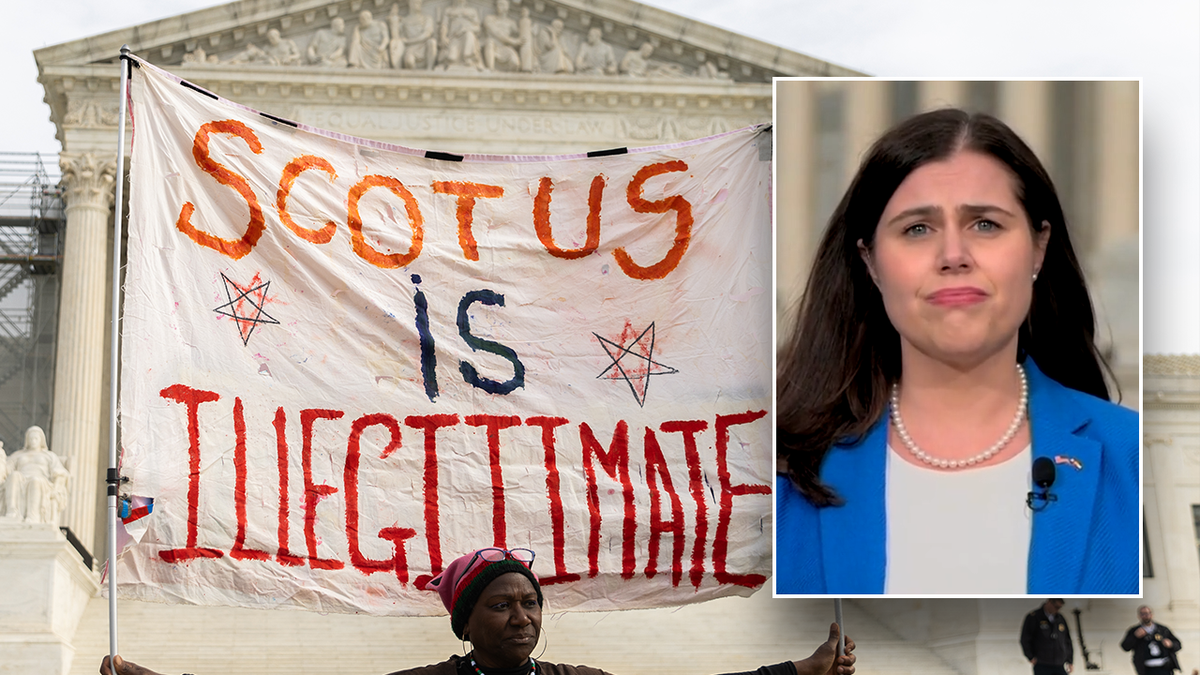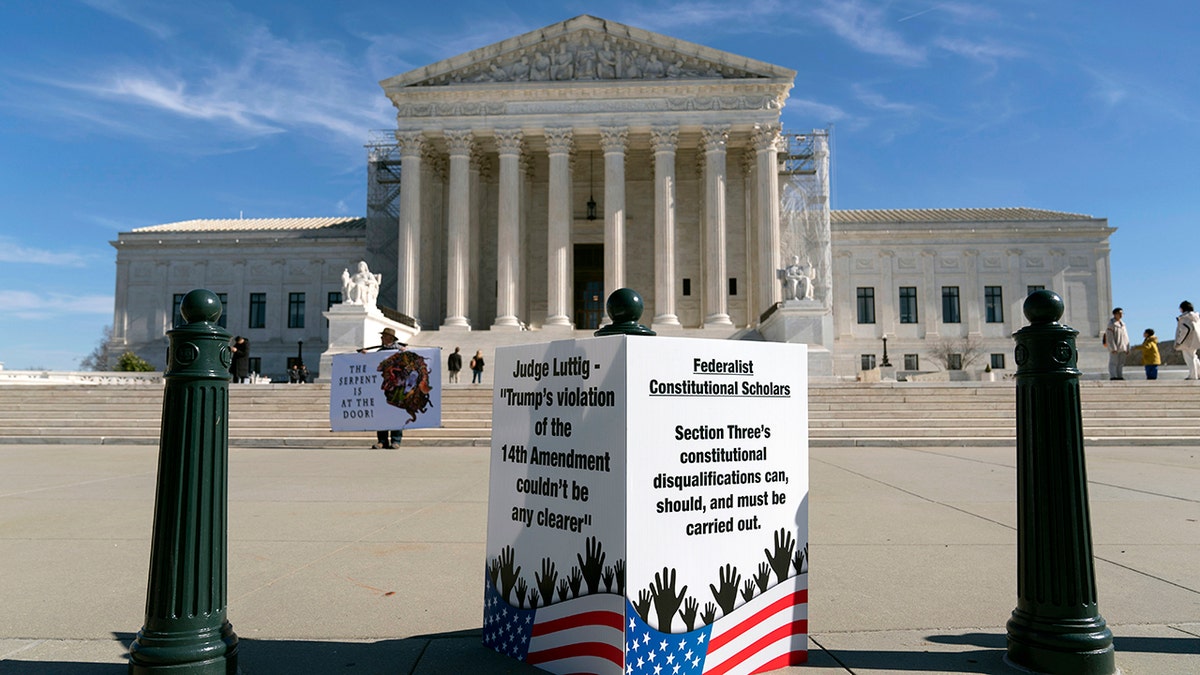Colorado secretary of state says Supreme Court ruling in favor of Trump would be ‘danger’ to America
Jena Griswold said it was ‘troubling’ for former President Donald Trump to claim ‘insurrectionists’ deserve to have a place on the ballot.
Colorado Secretary of State Jena Griswold offered a fiery response from the steps of the Supreme Court on Thursday and claimed a ruling that keeps former President Donald Trump on the ballot would be a "danger" to America's future.
During an appearance on MSNBC, Griswold took issue with the Supreme Court, focusing heavily on how Trump's removal could impact state ballots and suggesting that "restricted laws" on voting have already affected other states via the composition of Congress.
"I personally think that that is how our federalism works. States are endowed with the ability to set up our elections," she told the media network.
Griswold then criticized Trump's rhetoric on January 6, 2021, and noted that Trump's claim that he would have immunity even if convicted of the crime of insurrection was "troubling for the entire country."

Colorado Secretary of State Jena Griswold said a Supreme Court ruling to keep Trump on the ballot would be a "danger" to the longevity of the United States. (Photo by Julia Nikhinson/Getty Images/MSNBC/Screenshot)
"If the justices were to accept Trump's arguments that he is fully above the Constitution, that insurrectionists deserve a place on the ballot and potentially an office, that will be a grave day for this country and a danger to our longevity as the United States," she added.
Her comments came after U.S. Supreme Court justices appeared skeptical of Colorado's argument that Trump should be removed from the state ballot for "insurrection" related to the 2020 election.
During arguments, Supreme Court Justice Ketanji Brown Jackson, whom President Biden appointed, said she understood Colorado's argument but pointed out that in Section 3 of the 14th Amendment, there is a list of people that can be barred – but the president is not one of them.
The 14th Amendment, Section 3 of the Constitution states, "No person shall… hold any office… under the United States… who, having previously taken an oath, as a member of Congress, or as an officer of the United States… to support the Constitution of the United States, shall have engaged in insurrection or rebellion against the same, or given aid or comfort to the enemies thereof."
SUPREME COURT TO HEAR TRUMP BALLOT REMOVAL CASE OUT OF COLORADO

People wait in line outside the U.S. Supreme Court on Wednesday, Feb. 7, 2024, in Washington, to be able to hear arguments on Thursday in former President Donald Trump’s appeal of the Colorado Supreme Court ruling. (AP Photo/Jose Luis Magana)
The amendment was adopted in 1868, following the Civil War.
Many of the queries focused on whether state courts or elected state officials can unilaterally enforce constitutional provisions and declare candidates ineligible for public office – so-called "self-executing" authority – or whether that is exclusively the jurisdiction of the U.S. Congress. Chief Justice John Roberts warned of a "pretty severe consequence" if disqualification proceedings came from "the other side," targeting Democratic candidates.
Justice Elena Kagan questioned, "Why does a single state get to decide who gets to be president of the United States?" calling that "quite extraordinary."
CLICK HERE TO GET THE FOX NEWS APP
The justices previously issued an administrative stay that ordered the Colorado secretary of state to put Trump's name back on the GOP primary ballot until the case is decided.
Fox News' Brooke Singman contributed to this report.


